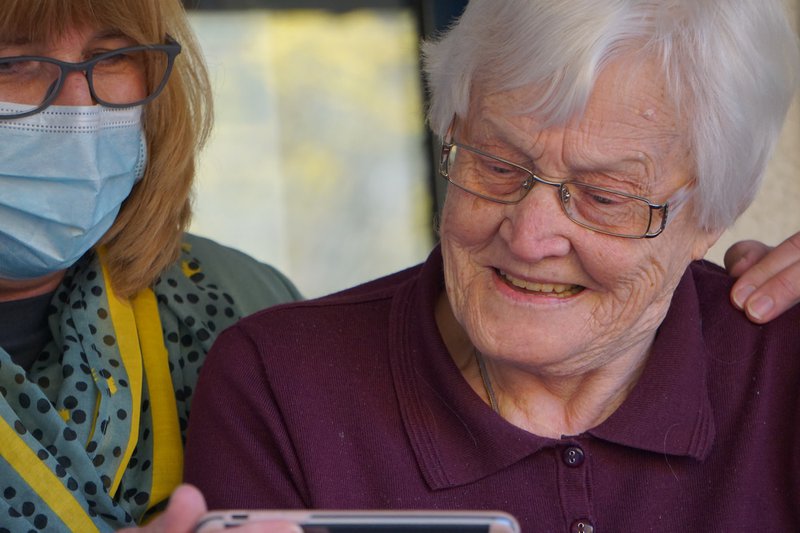Welcome to the world of caring for elderly loved ones! In this blog post, you'll find essential tips for taking care of the elderly and help guide your journey toward becoming the best caregiver possible.
As our loved ones age, it may become necessary for us to step in and provide care and assistance. This can be both a difficult but gratifying experience; however, it is vital that we equip ourselves with the appropriate knowledge and resources to ensure they receive the best possible care.
Learn the qualities that make a great caregiver and provide invaluable advice for caring for seniors with this article. So, let's dive in and explore the world of caregiving!

Tips and Tricks for Caring for the Elderly
Caring for elderly loved ones can be a rewarding experience, but it can also come with its own set of challenges. In order to provide the best care possible, it is important to understand and meet the various physical, emotional, and practical needs of the elderly person.
Here are some tips and tricks on how to take care of your elderly at home and how to provide the best possible care for your aging parents.
Physical Needs
Home Safety and Comfort
One of the most important aspects of caring for the elderly is making their home safe and comfortable. This may involve installing grab bars in the bathroom, adding handrails to staircases, and removing tripping hazards from the floor. You may also want to consider installing a medical alert system to ensure that help is always within reach.
Medications and Schedules
Managing medications and schedules can be a challenging task, especially if the elderly person has multiple prescriptions or appointments. It is important to create a care plan that includes a detailed list of medications, dosages, and schedules, as well as a calendar to keep track of appointments and other important dates.
Emotional Needs
Communication
Effective communication is key when caring for the elderly. It is important to listen to the elderly person's concerns and be open to their needs. Try to avoid arguments and be patient when they have trouble remembering things.
Emotional Support
Caring for an elderly parent can take a toll on the caregiver's emotional well-being, and it is important to seek support from friends, family, or a support group. Just as crucial as looking after a loved one is looking after oneself.
Practical Needs
Care Plan
Creating a care plan is one of the most important steps in caring for the elderly. This should include details about the person's physical and emotional needs, as well as any medical conditions or medications they may have. The care plan should also include a list of emergency contacts and procedures, as well as any necessary legal documents such as a power of attorney or advanced directive.
Prioritizing Tasks
It is also important to prioritize tasks and manage your time effectively, as caregiving can be overwhelming. Consider using a caring for aging parents checklist to help you stay organized and on track.
Self-Care for Caregivers
Let’s face it, caregiving can be stressful. With this, it’s essential to find ways to manage the stress associated with it. Consider incorporating exercise, meditation, or other stress-management techniques into your routine.
Caregiving can also lead to depression, and it is also important to seek help if you are feeling overwhelmed or hopeless, as these feelings are valid concerns that can lead to anxiety and depression. This may involve speaking with a counselor or therapist or joining a support group for caregivers.
Dealing with Stubborn Elderly Parents
One of the biggest challenges of caring for an elderly parent is dealing with a stubborn parent. It is necessary to understand that this behavior is often a result of fear or confusion and to be patient and understanding.
It is also vital to find ways to compromise and work together to find solutions that are in the best interest of the elderly person. This may involve finding alternative care options, such as in-home care or assisted living, if necessary.
How Caregiving Affects A Person Emotionally
Emotional challenges go alongside caregiving. A report from the National Alliance for Caregiving and the AARP found that 40% of family caregivers experience depression. The emotional toll of caring for a loved one can be intense and impact both the caregiver's mental and physical health.
Stress and Burnout
Managing the daily tasks of caring for an elderly parent, such as providing assistance with bathing, grooming, and feeding can be physically and emotionally draining. On top of that, the caregiver may have to manage additional responsibilities, such as work and family obligations. This can lead to feelings of stress and burnout.
Guilt
Caregivers may feel guilty for not doing enough or for not being able to provide the same level of care as a professional caregiver. With this, caregivers should always remember that they are doing the best they can and to not compare themselves to others.
Depression
Depression is a common side effect of caregiving, especially for those who have been in this role for a long period of time. The emotional and physical demands of caregiving, combined with feelings of guilt and stress, can contribute to feelings of depression so make sure to prioritize your own mental health and seek support when needed.
Caring for Aging Parents Checklist
Staying organized and having a clear plan in place to ensure that all of their needs are being met are necessary for someone providing elderly care. The following is a checklist to help caregivers prioritize their responsibilities and keep track of their tasks.
- Medications and Schedules: Keep track of all medications, dosages, and schedules. Be sure to refill prescriptions in a timely manner and to keep track of any side effects or changes in the elderly parent’s condition.
- Mobility and Safety Need: Assess the elderly parent’s mobility and safety needs, including any physical limitations or difficulties with daily activities. Make any necessary modifications to the home to improve their safety and make it easier for them to move around.
- Meals and Nutrition: Plan for meals and nutrition, taking into account any special dietary requirements, such as low-sodium or low-carb diets. Consider meal delivery services or meal preparation services to ensure that the elderly parent is getting proper nutrition.
- Transportation: Arrange transportation for the elderly parent, including doctor's appointments, errands, and social outings. This could include driving them yourself, hiring a caregiver or transportation service, or using public transportation.
- Emergencies: Prepare for emergencies, and that includes having a plan in place for power outages, natural disasters, and medical emergencies. Keep a list of important phone numbers and important documents easily accessible.
- Living Environment: Make sure the elderly parent’s living environment is comfortable and conducive to their health. This could include making modifications to the home, such as installing grab bars in the bathroom or adding a wheelchair ramp, or rearranging furniture to create a more accessible living space.
By following this caring for aging parents checklist, you’re sure to provide elderly loved ones with the best possible care and support. Remember to take care of yourself, too, and seek support from friends, family, or community resources if needed.
How to Deal with the Stress of Caring for an Elderly Parent
As a caregiver, taking care of yourself and finding ways to manage stress are must-dos in order to maintain your overall well-being and health. Here are some strategies that can help:
- Make time for self-care activities. Prioritize self-care and make time for activities that bring you joy and relaxation, such as reading a book, taking a walk, or getting a massage.
- Seek support from friends and family. Having a supportive network of friends and family can make a big difference in managing stress. Talking to someone you trust about your experiences and feelings can provide a sense of relief and comfort.
- Join a caregiver support group. Joining a caregiver support group can provide a sense of community and offer the opportunity to connect with others who understand what you're going through.
- Seek counseling or therapy. Talking to a mental health professional can provide support and strategies for managing stress and dealing with the emotional impact of caregiving.
Practice relaxation techniques. Relaxation techniques like deep breathing, meditation, and yoga can help reduce stress and promote overall well-being.
How to Be a Good Caregiver
To be a good caregiver requires a lot of patience and understanding. Listed below are some tips and advice on how to be the best caregiver that you can be:
- Understand the elderly parent's needs and preferences. Communication is key when it comes to caring for an elderly parent. Take the time to understand their needs and preferences, and make sure to incorporate them into your care plan.
- Be patient and flexible. Caring for an elderly parent can be a long-term responsibility, so it's important to be patient and flexible. It's okay to make adjustments to the care plan as needed and to seek help when necessary.
- Be proactive and organized. Keeping a schedule and being proactive about tasks can help keep things running smoothly and reduce stress. Make sure to prioritize important tasks and keep track of medications, appointments, and schedules.
- Learn how to communicate effectively. Good communication is essential when it comes to caring for an elderly parent. Practice active listening, be respectful and patient, and make sure to keep lines of communication open and honest.
- Seek help and support when needed. Taking care of an elderly parent can be a big responsibility, and it's okay to ask for help when necessary. Seek support from friends and family, join a caregiver support group, or consider hiring professional help.
Conclusion
As a caregiver, it's essential to be equipped with the necessary knowledge, skills, and resources to provide the best care possible for your elderly parent. The tips and advice presented in this article aim to help you navigate the various aspects of elderly care, including physical, emotional, and practical needs.
And while taking care of others, don’t forget to take care of yourself and seek help if needed. Most importantly, learn to enjoy the journey of caring for your loved ones.
Caring for the elderly can be a challenging task, but it's also a labor of love. Get the expert advice and caregiver services you need to make the process easier.


